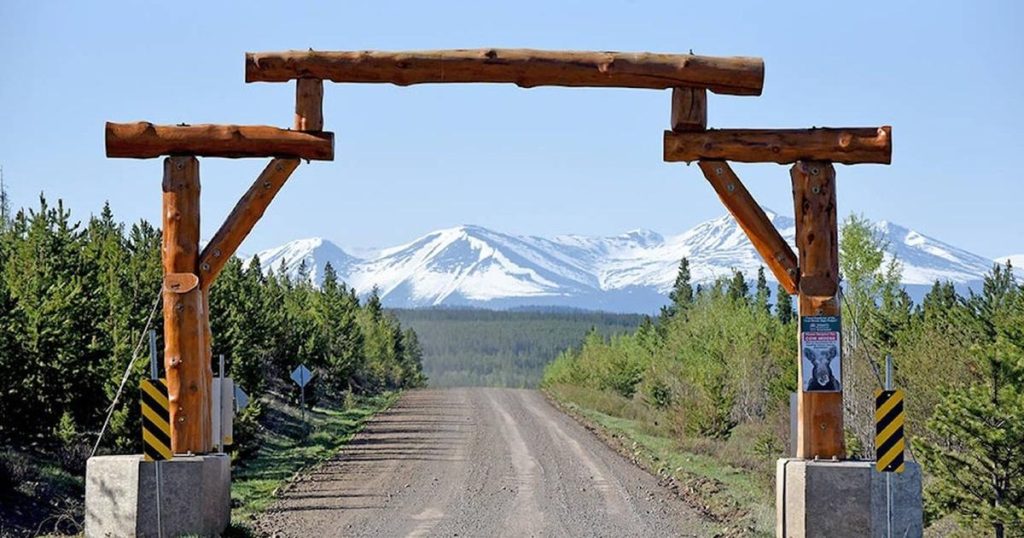Listen to the article
The Stswēcemc Xget’tem First Nation has publicly accused the British Columbia government of spreading misinformation about Aboriginal title following the release of what the nation describes as an “inflammatory and patently false” press statement.
Chief Hillary Adam of Stswēcemc Xget’tem, a Secwēpemc nation located in the Cariboo region, expressed strong disappointment with the province’s characterization of their recent negotiations. The dispute centers on the interpretation of Aboriginal title rights and the government’s approach to consultation regarding mining activities within the nation’s traditional territory.
“The province’s statement is misleading the public about what Aboriginal title means and how it works within Canadian law,” Chief Adam said. “It undermines the very foundation of the reconciliation process we’ve been working toward.”
At issue is a recent communication from the provincial government that, according to the First Nation, incorrectly suggested that recognizing Aboriginal title would prevent economic development and mining operations in the region. The Stswēcemc Xget’tem leadership maintains that their assertion of title is not intended to halt development but rather to ensure meaningful partnership and consultation.
The controversy unfolds against the backdrop of British Columbia’s complex landscape of Aboriginal title claims. The landmark 2014 Supreme Court of Canada decision in Tsilhqot’in Nation v. British Columbia established that Aboriginal title constitutes a beneficial interest in the land that gives the title-holding group the right to use, control, and derive economic benefits from that territory.
Indigenous law experts note that this disagreement reflects broader tensions in how provincial governments interpret their duty to consult. Professor John Borrows, an Indigenous legal scholar at the University of Victoria, explained that “there’s often a fundamental misunderstanding about what Aboriginal title entails. It doesn’t mean exclusion of others, but rather shared decision-making and equitable participation in resource management.”
The mining sector represents a significant economic driver in the Cariboo region, with numerous operations employing local residents and contributing to provincial revenues. Industry representatives have expressed concern about regulatory uncertainty but have also acknowledged the importance of establishing clear frameworks for Indigenous participation.
“What we seek is certainty and a clear path forward,” said Michael Davidson, CEO of the Regional Mining Association. “Most companies understand that meaningful partnerships with First Nations are not just legally required but make good business sense in the long run.”
The Stswēcemc Xget’tem First Nation has emphasized that they support sustainable economic development that respects their rights and includes them as economic partners. Their leadership points to successful resource development agreements between other First Nations and industry partners as models for what can be achieved through good-faith negotiations.
“We are not opposed to responsible development,” Chief Adam clarified. “What we oppose is being excluded from decisions that affect our traditional territories and having our constitutional rights misrepresented to the public.”
The provincial government, through its Ministry of Indigenous Relations and Reconciliation, has indicated it remains committed to the reconciliation process but maintains that its communications accurately reflect current legal frameworks.
This disagreement emerges as British Columbia continues to develop its approach to implementing the UN Declaration on the Rights of Indigenous Peoples (UNDRIP), which the province adopted into law in 2019. The declaration’s provisions for Free, Prior, and Informed Consent have created new expectations for how governments engage with Indigenous communities on resource development projects.
Legal observers suggest this public dispute signals growing frustration among First Nations about the gap between the province’s reconciliation rhetoric and its practical implementation of Indigenous rights frameworks.
As this situation develops, both industry stakeholders and other First Nations throughout British Columbia are watching closely, recognizing that how this conflict resolves could set important precedents for future resource development negotiations in the province.
Fact Checker
Verify the accuracy of this article using The Disinformation Commission analysis and real-time sources.




9 Comments
This is a concerning issue that speaks to the ongoing tensions between Indigenous rights and resource development in Canada. Both sides seem to have valid concerns that need to be addressed through open and constructive dialogue.
It’s troubling to see accusations of misinformation being leveled. Restoring trust and ensuring all stakeholders have a common understanding of the issues at hand should be the top priority.
The Cariboo Nation’s concerns about the province’s characterization of Aboriginal title are understandable. Accurately communicating the legal principles and practical implications is critical to facilitating meaningful progress.
Agreed. Clear and transparent communication from the government is essential to building trust and finding a mutually acceptable path forward.
This case highlights the ongoing challenges around reconciling Indigenous rights with economic development interests. It’s a nuanced issue that requires patience, empathy and a genuine commitment to collaboration from all parties.
The accusation of misinformation is quite serious. The government should be transparent about its position and engage in good faith with the Cariboo Nation to clarify any misunderstandings.
Absolutely. Rebuilding trust through open and honest dialogue is key to making progress on this issue.
Effective communication and consultation between the provincial government and Indigenous communities is critical to navigating these complex matters. I hope they can find a resolution that respects Aboriginal title while also supporting sustainable economic opportunities.
Agreed. It’s important to find a balanced approach that upholds Indigenous rights while also enabling responsible resource development that benefits local communities.